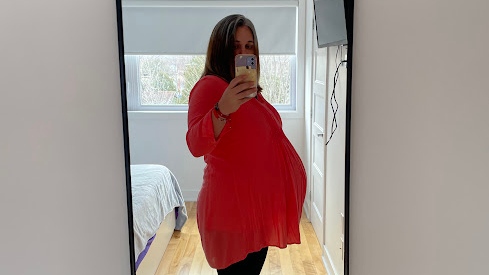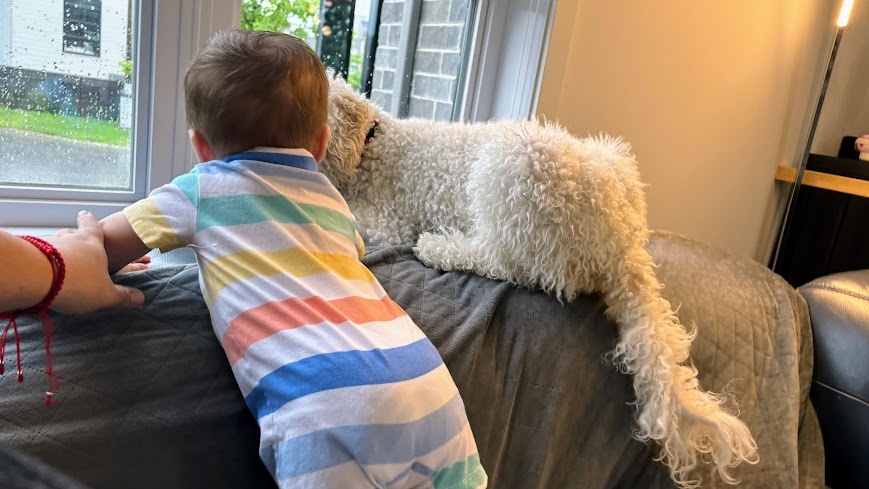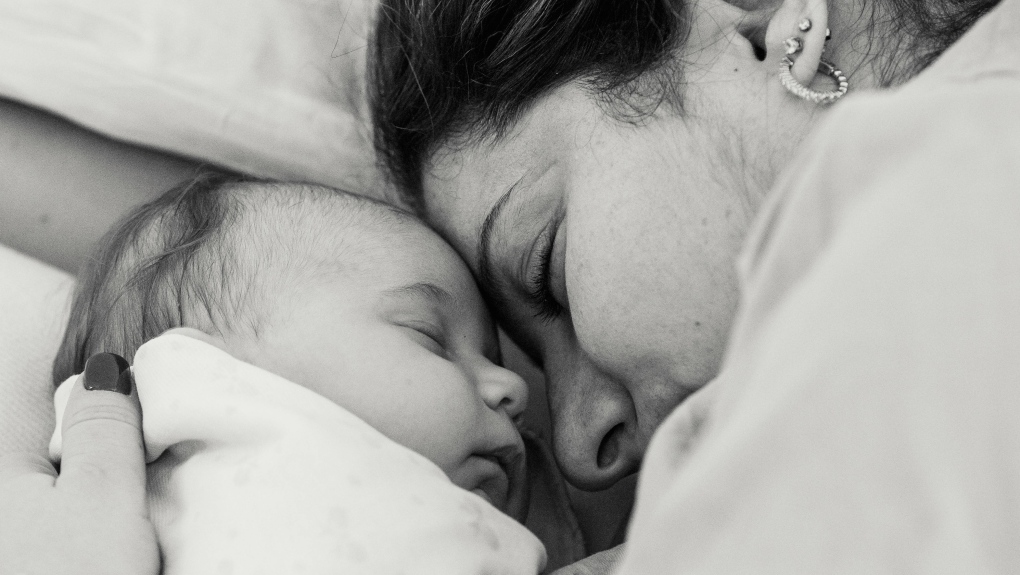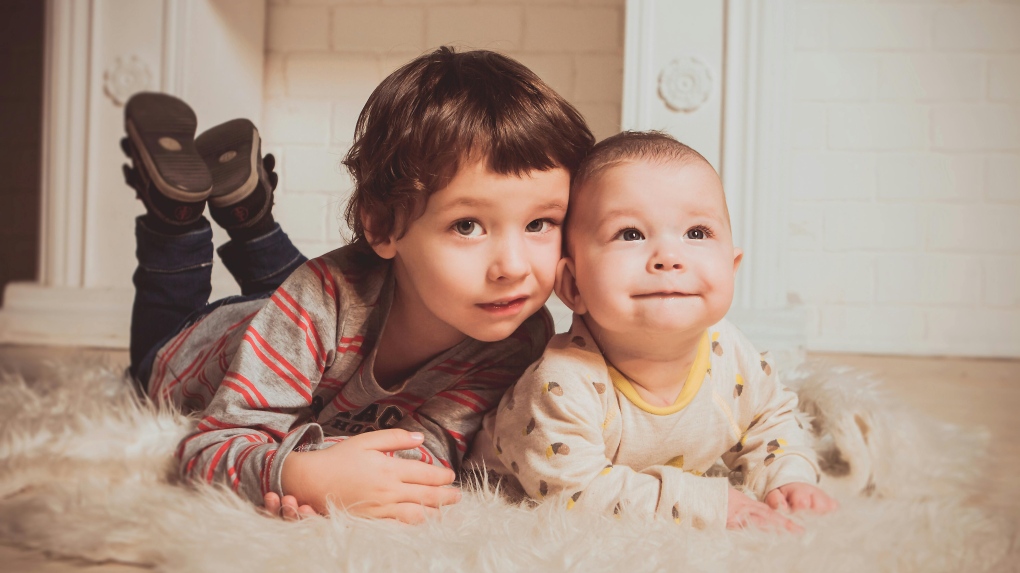IVF: Hidden hopes and devastating deceptions as families try to conceive
When Gretel Fernandez Collazo held her newborn son in her arms for the first time, she couldn't believe her eyes -- or her heart.
After eight long years of trying, of painful procedures and even more agonizing heartbreaks, he was finally here.
"I didn't know that a baby could smile that early," she says, beaming. "I always say to him, 'Don't ever lose that smile because that makes me smile too.'"
Fernandez Collazo has what doctors describe as "unexplained infertility."
In short, there's no obvious reason to justify why she has trouble conceiving.
She says because of this, doctors initially recommended she do intrauterine insemination (IUI) before trying in vitro fertilization (IVF).
"I did two right away. They didn't work, and then I stopped," she said. "It was overwhelming me so much -- and it was only the beginning. But I was like OK, we have time."
A year went by before she returned to the clinic.
Three more rounds of IUI, and nothing.
The now 40-year-old says that's when her doctor recommended switching to IVF.
"I only had two eggs...and they were not mature," she said, recalling how painful the extraction was. "The next day, they called and they said they [the eggs] are mature...And then they called me again. One of them...started growing to be an embryo."
Fernandez Collazo did the transfer three days later.
"And it didn't work," she sighed.
Not ready to admit defeat, Fernandez Collazo and her husband signed up for a second round of IVF.
"We had five good quality embryos that ended up being three," she remembers. "They transferred me the embryos that were good quality, but again [it] didn't work. It was extremely hard."
She decided it was time to take a break.
"That second IVF was really painful. I think it was too much for my body with the hormones," Fernandez Collazo tells CTV News. "I had to wait a bit to calm down and to recover."
To her surprise, she found out that she had fallen pregnant naturally.
"It was even a bigger surprise that I was having identical twins," she said.
But the fairytale didn't last.
"I lost them at 15 weeks," said Fernandez Collazo, tearing up. "I knew I was having baby girls...It was devastating. That was 2022."
Two years later, she says the heartbreak never leaves her.
"I was like, why? And still, two years later, every time I see twins, identical twins, I'm like, Why? Why me?" she asks.
 A pregnant Gretel Fernandez Collazo. (Gretel Fernandez Collazo)
A pregnant Gretel Fernandez Collazo. (Gretel Fernandez Collazo)
She decided to return to her IVF journey.
After weeks of more injections and additional tests, the couple produced one viable embryo.
"They transferred it, and I remember I got home, I said to my husband, 'It was only one,'" she said. "He told me, 'We only need one to work.' And then 10 days after, they called that it was positive. I couldn't believe it."
The 40 weeks that followed were the scariest of Fernandez Collazo's life.
"People enjoy being pregnant. I didn't. I was so scared," she said.
That struggle is something Raquel Niddam knows all too well.
She has yet to meet her baby, and holding onto hope is what pulls her through each day.
"The first retrieval, I had in total, 12, but after three to five days, I was only left with three good quality," Niddam tells CTV News. "My result was positive, I was pregnant. However, at week six...I had a miscarriage...Then I did a second attempt, where this time I had 18 eggs collected. Out of the 18, there were four that were good to transfer. Positive result, however week eight, heartbeat stopped."
The 41-year-old says the memory of that moment haunts her.
"I saw the heart. I saw it," she said. "He grew, and when the heart stopped, I saw that he actually grew, I saw the shape...and to remove it was very painful. It was hard for me."
At the time of her interview with CTV News, Niddam was in the middle of a third round of IVF, imminently expecting to find out if she was pregnant.
"I try to stay positive," she said. "I know that even if I get a positive result, doesn't mean it's going to work. So, I think I'm going to try to be less excited."
She messaged a few days later to say that her pregnancy test returned positive.
Niddam says she's always known she was meant to be a mother, but she never thought the journey would be so complicated.
"The truth is that mentally, emotionally, physically, it's not like a regular pregnancy," she notes. "We get beat up by those hormones. It's hard. It's really hard."
The only thing harder, she says, is being fooled over and over again.
"Getting deceived each time and still trying to be positive, it's hard," she said. "I was trying to stay positive, but I'm scared. I'm scared. I'm really scared."
 Gretel Fernandez Collazo shares a photo of her son. (Gretel Fernandez Collazo)
Gretel Fernandez Collazo shares a photo of her son. (Gretel Fernandez Collazo)
Pressure to persevere
Fernandez Collazo says one of the hardest parts of her journey was the deception of how easily she "should" have gotten pregnant.
"Before starting this process, getting pregnant and having a baby was so easy, was natural, nothing to worry about because that's what I saw from my friends," she said. "I was struggling, and they were having their first kids. And then I was really struggling, [and] they were having their second kids. So, I felt a bit alone."
Looking back, she says she wishes she had been able to connect with other families living the same experience as she and her husband.
"People don't talk about it. I wish I had more information. I wish I could have talked to someone going through that," she said. "I needed someone that was feeling the same [way] I was feeling, talking to someone in the same situation as I am."
Despite everything, the couple says they're now thinking of trying to implant one last frozen embryo to see if a second child is in the cards for them.
"I was traumatized, to be honest, but it was worth it, and now we have a beautiful baby boy," Fernandez Collazo smiles.
 A woman holds her baby. (Sarah Chai/pexels.com)
A woman holds her baby. (Sarah Chai/pexels.com)
Getting clinical
Dr. Michael Dahan, an associate professor of obstetrics and gynecology at McGill University, explains that IVF is often reserved for complex medical problems or infertility.
"Infertility is defined as one year of sexual relations without conceiving a child," he notes. "Over that year, you would expect a couple to conceive. In fact, 85 per cent of couples will conceive in the year."
Dahan says that when a family, whether it be a single person or a couple, walks into his office, the first thing they do is run tests on all parties.
"For the female, we test a lot of different things, whether they are making an egg each month, whether they have an effective age on their fertility, whether the fallopian tubes are blocked," he lists. "The male, it really comes down to one thing: an evaluation of the sperm. We want to know, is the sperm there? Is it moving well? Is it formed well?"
Another important factor that doctors look at is a woman's age.
"Sometimes there aren't enough eggs left, and usually when there are very few eggs when a woman is older, the quality is also reduced," Dahan notes, adding one of the things he offers is the possibility of using an egg donor. "For most women, fertility ends at about 43. So, it can get a lot harder as people get older."
He explains that infertility issues are usually even split, half because of the male partner and half due to the female partner.
In addition, there's about a 20 per cent overlap, with couples needing aid on both sides.
"Men don't talk about it as much. They have a tendency to bottle things inside, but they're going through the same emotional rollercoaster as their partner," said Dahan. "They're there; they also want to have a child; they have to do this treatment."
Once the results are in, doctors can determine the best course of action in terms of medication, suppositories, injections and more.
Dahan, whose patients include Fernandez Collazo and Niddam, says it can often take years before families meet their babies.
"IVF is such an emotional roller coaster, it really is. There's so much energy and effort put into it," he said. "Patients have often said to me things like, 'I don't understand why I have to go through this.'"
He says he sees how the impact of treatment -- paired with the intense need and want to have a child -- can overtake a person's life.
"We know that in at least half our patients, sadly, all they are doing is fertility care," Dahan said. "They're not functioning with their friends, they're not functioning in their jobs, they really have had so much energy and effort put into doing this."
Complications, he adds, are also an unfortunate part of the process.
"To have a miscarriage, that's a huge low that can be emotionally even harder than not getting pregnant," he said. "You thought everything was OK, and then, all of a sudden, it's not going the way you wanted it to go."
The good news? Dahan estimates that almost 95 per cent of families will end up with a child.
"Only about 10 per cent of women or couples that need fertility care present to us, meaning 90 per cent don't even come to see a fertility doctor," he said.
 Two children lie on the floor. (Vika Glitter/pexels.com)
Two children lie on the floor. (Vika Glitter/pexels.com)
Getting help
Fertility treatment can be expensive, so in November 2021, the Quebec government devised a medically assisted reproduction program to help.
"Various medical services are provided, including in vitro fertilization, artificial insemination and fertility preservation," the Quebec Health Ministry states. "The program is based on best practice standards while taking into account the province's ability to pay. The criteria imposed are designed to offer a modern, sustainable program that respects family realities while limiting obstetrical risks for women receiving treatment or neonatal risks for children."
Since the start of the program, data from the Régie de l'assurance maladie du Québec (RAMQ) show that more than 7,900 people have benefited from an insured in vitro fertilization cycle (egg retrieval), as well as more than 7,600 frozen embryo transfers.
CTVNews.ca Top Stories

opinion Tom Mulcair: Prime Minister Justin Trudeau's train wreck of a final act
In his latest column for CTVNews.ca, former NDP leader and political analyst Tom Mulcair puts a spotlight on the 'spectacular failure' of Prime Minister Justin Trudeau's final act on the political stage.
B.C. mayor gets calls from across Canada about 'crazy' plan to recruit doctors
A British Columbia community's "out-of-the-box" plan to ease its family doctor shortage by hiring physicians as city employees is sparking interest from across Canada, says Colwood Mayor Doug Kobayashi.
'There’s no support': Domestic abuse survivor shares difficulties leaving her relationship
An Edmonton woman who tried to flee an abusive relationship ended up back where she started in part due to a lack of shelter space.
opinion King Charles' Christmas: Who's in and who's out this year?
Christmas 2024 is set to be a Christmas like no other for the Royal Family, says royal commentator Afua Hagan. King Charles III has initiated the most important and significant transformation of royal Christmas celebrations in decades.
Baseball Hall of Famer Rickey Henderson dead at 65, reports say
Rickey Henderson, a Baseball Hall of Famer and Major League Baseball’s all-time stolen bases leader, is dead at 65, according to multiple reports.
Arizona third-grader saves choking friend
An Arizona third-grader is being recognized by his local fire department after saving a friend from choking.
Germans mourn the 5 killed and 200 injured in the apparent attack on a Christmas market
Germans on Saturday mourned the victims of an apparent attack in which authorities say a doctor drove into a busy outdoor Christmas market, killing five people, injuring 200 others and shaking the public’s sense of security at what would otherwise be a time of joy.
Blake Lively accuses 'It Ends With Us' director Justin Baldoni of harassment and smear campaign
Blake Lively has accused her 'It Ends With Us' director and co-star Justin Baldoni of sexual harassment on the set of the movie and a subsequent effort to “destroy' her reputation in a legal complaint.
Oysters distributed in B.C., Alberta, Ontario recalled for norovirus contamination
The Canadian Food Inspection Agency has issued a recall due to possible norovirus contamination of certain oysters distributed in British Columbia, Alberta and Ontario.


































